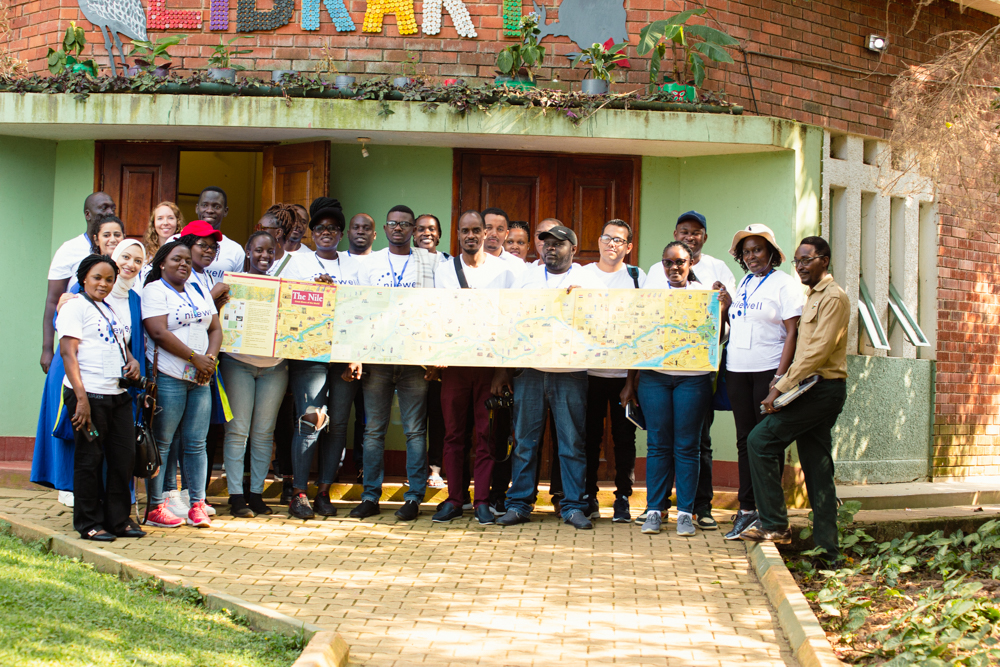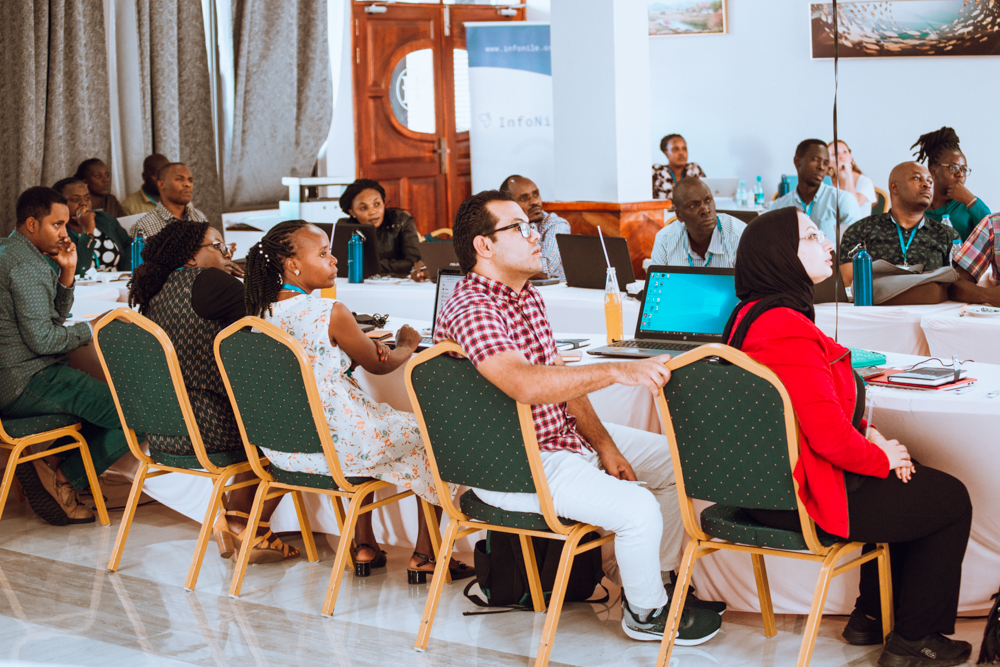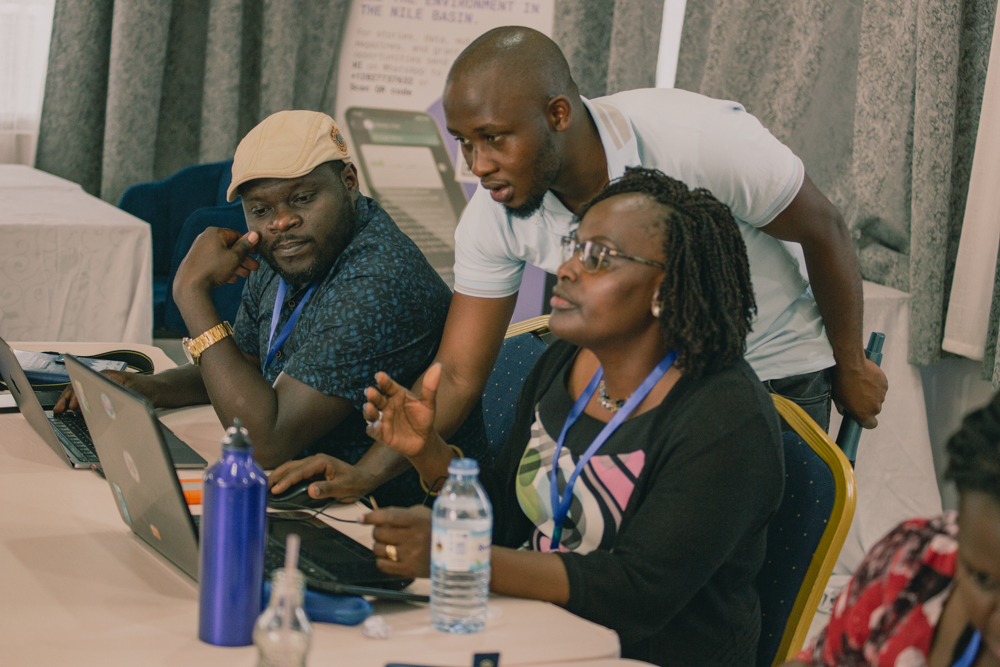
Coproduction fellows and InfoNile Staff pose for a group photo at the Uganda Wildlife Education Centre
Delicate Sive, August 8, 2023
In an effort to bridge the gap between journalists and scientists, InfoNile launched the NileWell Journalist- Scientists Co Production Fellowship Program which supports professional journalists and scientists/researchers with an interest in communicating biodiversity and water science in the Nile Basin for a 9-month fellowship program.
The co-production fellowship program seeks to improve the communication between the scientific community, the media, and audiences in the Nile Basin, including local communities, individuals, policymakers and organisations working in water and environmental conservation. It also aims to facilitate collaboration between scientists and journalists working in or around water-related fields to enhance the media's understanding of science and research. By partnering, scientists and journalists work together to make science more accessible, understandable, and engaging to each other and the public.
Its first pilot group was in 2023, which included a week-long inception in-person residential training workshop in Entebbe in July 2023 where 16 participants (8 journalists and 8 scientists) from Uganda, Kenya, Tanzania, Egypt, South Sudan, DRC, Ethiopia and Rwanda were selected and trained in science communication, the science and journalism process, the importance of collaboration between scientists and journalists, reporting on transboundary water resources and biodiversity in the Nile Basin, use of traditional media to communicate research, pitching science stories, geo-journalism and data visualisation as well as promoting research through social media platforms.

An ongoing training session
Participants also visited the Nile Basin Initiative (NBI) offices, where they got insights into NBI’s mandate, projects, challenges, threats and opportunities. They also took a field trip to Uganda Wildlife Educational Centre, a boat ride on Lake Victoria and a visit to the Entebbe Botanical Gardens.
One scientist and one journalist were paired per country to work on collaborative communication projects, co-producing communication outputs including stories, podcasts, press releases,, short videos, MoJo videos and data visualisations based on the scientists’ research.
The program also included 6 months of follow-up online training sessions on communication topics such as data visualisation, podcasting and social media content creation. Fellows were also grouped with expert science journalism mentors for individualised coaching as they produced their stories.

Journalist Samuel Munia(left) and Dr. Jane Macharia, both from Kenya, in a practical data visualisation session by data journalist Blanshe Musinguzi.
As the first cohort winds up on their deliverables, each pair will publish their stories on their local media houses and InfoNile and then showcase their work to the general public through InfoNile’s Science Wednesday monthly webinar series run through our NileWell platform, which connects journalists with water and environmental scientists. The first session by the Kenyan Team, showcasing their co-produced story about conservation threats to Ngong forest, was captured here.
Watch more about the NileWell Scientist-Journalist Coproduction Fellowship Program here.
